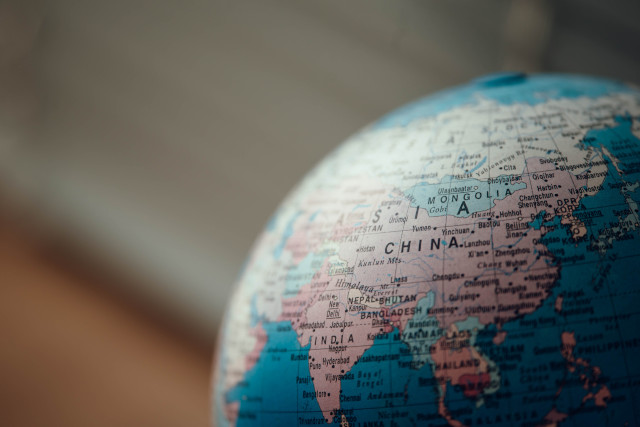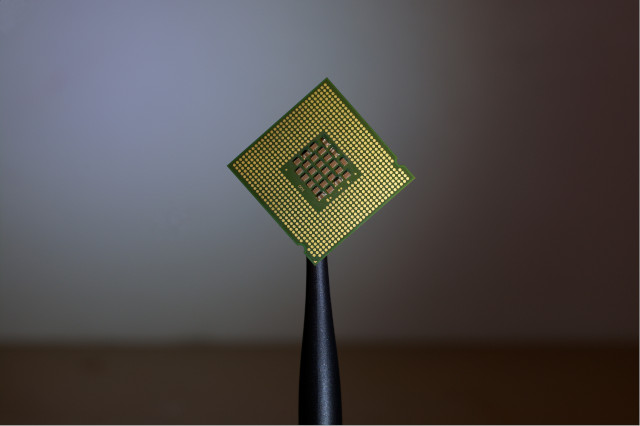
Location. Location. Location.
Amazon is scrapping their New York City plans due to severe political push-back on the incentives NYC provided and the overall impact to the city.
Meanwhile, the long discussed Foxconn LCD factory that was to be built in Wisconsin, is covered in a cloud confusion. First they were, then they weren’t, and now they are looking to build a smaller facility…maybe?
Acquisitions
- Report: Intel bids up to $6B to buy Mellanox
If the deal reaches fruition, the $6 billion price tag would represent a 30% premium over the last closing price of Mellanox on Nasdaq last night, according to a story by Globes.
The news of Intel’s interest in buying Mellanox came on the heels of Monday’s news that Intel was investing $11 billion to expand its chip plant in Israel. Intel also announced on Monday that it had received a $1 billion government grant for its expansion.
https://www.fiercetelecom.com/telecom/report-intel-bids-up-to-6b-to-buy-mellanox
Artificial Intelligence
- Google and Microsoft warn investors that bad AI could harm their brand
These disclosures are not, on the whole, hugely surprising. The idea of the “risk factors” segment is to keep investors informed, but also mitigate future lawsuits that might accuse management of hiding potential problems. Because of this they tend to be extremely broad in their remit, covering even the most obvious ways a business could go wrong. This might include problems like “someone made a better product than us and now we don’t have any customers,” and “we spent all our money so now don’t have any.”
But, as Wired’s Tom Simonite points out, it is a little odd that these companies are only noting AI as a potential factor now. After all, both have been developing AI products for years, from Google’s self-driving car initiative, which began in 2009, to Microsoft’s long dalliance with conversational platforms like Cortana. This technology provides ample opportunities for brand damage, and, in some cases, already has. Remember when Microsoft’s Tay chatbot went live on Twitter and started spouting racist nonsense in less than a day? Years later, it’s a still regularly cited as an example of AI gone wrong.
https://www.theverge.com/2019/2/11/18220050/google-microsoft-ai-brand-damage-investors-10-k-filing

Cloud
- Google and IBM still trying desperately to move cloud market share needle
This week, the two companies made some more noise, letting the cloud market know that they are not ceding the market to anyone. For IBM, which is holding its big IBM Think conference this week in San Francisco, it involved opening up Watson to competitor clouds. For a company like IBM, this was a huge move, akin to when Microsoft started building apps for iOS. It was an acknowledgement that working across platforms matters, and that if you want to gain market share, you had better start thinking outside the box.
While becoming cross-platform compatible isn’t exactly a radical notion in general, it most certainly is for a company like IBM, which if it had its druthers and a bit more market share, would probably have been content to maintain the status quo. But if the majority of your customers are pursuing a multi-cloud strategy, it might be a good idea for you to jump on the bandwagon — and that’s precisely what IBM has done by opening up access to Watson across clouds in this fashion.
Security
- Huawei Corporate Entities Conspired to Steal Trade Secret Technology and Offered Bonus to Workers who Stole Confidential Information from Companies Around the World
According to the indictment, in 2012 Huawei began a concerted effort to steal information on a T-Mobile phone-testing robot dubbed “Tappy.” In an effort to build their own robot to test phones before they were shipped to T-Mobile and other wireless carriers, Huawei engineers violated confidentiality and non-disclosure agreements with T-Mobile by secretly taking photos of “Tappy,” taking measurements of parts of the robot, and in one instance, stealing a piece of the robot so that the Huawei engineers in China could try to replicate it. After T-Mobile discovered and interrupted these criminal activities, and then threatened to sue, Huawei produced a report falsely claiming that the theft was the work of rogue actors within the company and not a concerted effort by Huawei corporate entities in the United States and China. As emails obtained in the course of the investigation reveal, the conspiracy to steal secrets from T-Mobile was a company-wide effort involving many engineers and employees within the two charged companies.
As part of its investigation, FBI obtained emails revealing that in July 2013, Huawei offered bonuses to employees based on the value of information they stole from other companies around the world, and provided to Huawei via an encrypted email address.
Software/SaaS
- SAP job cuts prove harsh realities of enterprise transformation
SAP announced that it was restructuring in order to save between €750 million and €800 million (between approximately $856 million and $914 million).
While the company tried to put as positive a spin on the announcement as possible, it could involve up to 4,000 job cuts as SAP shifts into more modern technologies. “We are going to move our people and our focus to the areas where the new economy needs SAP the most: artificial intelligence, deep machine learning, IoT, blockchain and quantum computing,” CEO Bill McDermott told a post-earnings press conference.
https://techcrunch.com/2019/01/29/sap-job-cuts-prove-harsh-realities-of-enterprise-transformation/

Datacenter/Hardware
- Google Fiber is leaving Louisville in humiliating setback
In Louisville, Google Fiber installation crews had been using a process called “shallow trenching” that involved laying fiber cable two inches beneath the sides of roads in the city and covering them up with sealant. The company seemed optimistic about this plan until some of the cable started becoming exposed over time, requiring a second cover-up with hot asphalt. It seems Access realized it had to go a bit deeper with the cabling; in San Antonio, a similar method is used — but the fiber is laid at least six inches deep into the ground. Google Fiber has at times faced legal challenges from rivals (like AT&T) that don’t want to share utility poles, so shallow trenching is also a way around that hurdle.
Unfortunately, things have somehow gone so awry in Louisville that Google Fiber claims it would need to rebuild the entire network to get everything to a satisfactory point, and it seems Alphabet just isn’t interested in blowing the cash that would be necessary to do that. So instead, Google Fiber will today alert Lousville customers that their service will end on April 15th.
https://www.theverge.com/2019/2/7/18215743/google-fiber-leaving-louisville-service-ending
- Intel names Robert Swan as permanent CEO
Intel’s stock slid Thursday after the chipmaker named interim CEO Robert Swan to the position permanently, ending a months-long search following the ouster of Brian Krzanich for what it called a “consensual relationship” with an employee.
Swan, 58, has been interim CEO for seven months and chief financial officer since 2016. He was also elected to the board, the company said. Several media outlets including Bloomberg previously reported Swan didn’t want the job.
https://www.cnbc.com/2019/01/31/intel-names-robert-swan-ceo.html
- Apple will reportedly reveal its news subscription service next month
Apple might face some stiff opposition in its bid to launch a subscription news service this spring. Wall Street Journal tipsters claim publishers like the New York Times and Washington Post are objecting to terms that would have Apple take “about half” of the revenue from the service, dividing the rest among publishers based on the amount of time people spend reading articles. That’s a considerably higher cut than the 30 percent Apple takes during the first year of a subscription, let alone the 15 percent it takes later on.
It also wants “at least some” outlets to commit to supplying news for at least a year. Publishers are split on this, according to the sources — some want a longer commitment, while others want a chance to back out sooner.
The price isn’t set in stone, but it’s tentatively set to cost the same $10 per month that you pay for Apple Music.
https://www.engadget.com/2019/02/12/apple-news-service-publisher-objections/
- Microsoft begs users to stop using Internet Explorer
IE is often used by enterprises and organisations that wish to run legacy web apps, as the outdated browser still supports them, but choosing the easy way out now could come back to haunt businesses later.
Basically, by continuing to use IE as opposed to a more modern web browser, organisations are creating additional costs for themselves later by choosing the easiest, most convenient solution now as opposed to the best long term approach.
https://www.techradar.com/uk/news/microsoft-begs-users-to-stop-using-internet-explorer
Other
- No one seems to know what Foxconn is doing in Wisconsin
On January 30th, Louis Woo, special assistant to Foxconn chief executive Terry Gou, told Reuters that the company was rethinking the whole screen-making idea. “In Wisconsin we’re not building a factory,” Woo said. He explained that Foxconn can’t compete producing televisions in the US. Instead, it would be more profitable to manufacture LCD panels in China and Japan, ship them to Mexico, and import them in the US. On Thursday, the Nikkei Asian Review reported that work on the Wisconsin project had been suspended.
Later that day, Woo appeared to backtrack vaguely, sending a peculiar email to the Milwaukee TV station WTMJ suggesting that it was hard to know what to call the project. “No matter how we look at it, the campus cannot be simply described as a factory,” Woo wrote. “It is a lot more than that.”
https://www.theverge.com/2019/2/1/18206261/foxconn-wisconsin-factory-government-subsidies-investments
After a ‘personal conversation’ with Trump, Foxconn says it will build a factory in Wisconsin after all“After productive discussions between the White House and the company, and after a personal conversation between President Donald J. Trump and Chairman Terry Gou, Foxconn is moving forward with our planned construction of a Gen 6 fab facility,” a statement read. A Gen 6 facility is smaller than the factory Foxconn initially promised in 2017, but larger than the assembly facility Foxconn said it would build yesterday.
Foxconn has changed its plans multiple times since 2017, when then-Governor Scott Walker wooed the company with a record-breaking $4.5 billion in taxpayer subsidies. At the time, Foxconn promised a state-of-the-art, “Gen 10.5” screen-producing facility, and Walker and Trump touted the deal for bringing manufacturing jobs back to the US. In June of last year, however, the company said it would make a far smaller “Gen 6” facility. This week, the company said it wouldn’t make screens in Wisconsin at all, and would instead do a mix of assembly and “knowledge work.” The sudden change in plans seemed to catch Wisconsin officials off guard, and left locals worried about the future of their communities.
https://www.theverge.com/2019/2/1/18207102/trump-foxconn-wisconsin-factory-build
Foxconn is killing a second $9B factoryFoxconn will postpone most of the production planned in a 61 billion yuan ($9 billion) display panel project in the southern Chinese city of Guangzhou for at least six months, according to internal documents obtained by the Nikkei Asian Review. In the U.S., a $10 billion investment in display production in the state of Wisconsin has been suspended and scaled back as a result of negotiations with new Gov. Tony Evers, a Foxconn document obtained by Nikkei shows.
Foxconn’s decision to delay work on the two factories throws into doubt the promise of fresh investment and employment at a sensitive time for both economies. China’s economic growth has slowed to a 28-year low, while in the U.S., President Donald Trump continues to seek wins on his vow to bring manufacturing jobs back to America.
https://techcrunch.com/2019/01/31/foxconn-is-killing-a-second-9b-factory/

- Amazon Is Reconsidering Plan to Put Campus in New York
The recent change in conversation at Amazon accelerated after Monday’s nomination of New York state Sen. Mike Gianaris, a vocal opponent of the deal, to a state board that would allow him to veto the development plan, people familiar with the matter said. Mr. Gianaris needs to be approved for the post by Gov. Andrew Cuomo.
The governor and New York Mayor Bill de Blasio, fellow Democrats who have often clashed, agreed on wooing Amazon to New York with up to $3 billion in state and city tax incentives. On Friday, Mr. Cuomo reiterated his support for the deal for Amazon as he warned that local opponents could derail the project.
https://www.wsj.com/articles/amazon-reconsidering-plan-to-put-campus-in-new-york-11549668969?ns=prod/accounts-wsj
Amazon Pulls Out of Planned New York City HeadquartersAmazon on Thursday canceled its plans to build an expansive corporate campus in New York City after facing an unexpectedly fierce backlash from some lawmakers and union leaders, who contended that a tech giant did not deserve nearly $3 billion in government incentives.
Amazon released a statement mentioning they will not open their search to another city at this time:
We do not intend to re-open the HQ2 search at this time. We will proceed as planned in Northern Virginia and Nashville, and we will continue to hire and grow across our 17 corporate offices and tech hubs in the U.S. and Canada.
https://www.nytimes.com/2019/02/14/nyregion/amazon-hq2-queens.html
Photo by Zoltan Kovacs on Unsplash











